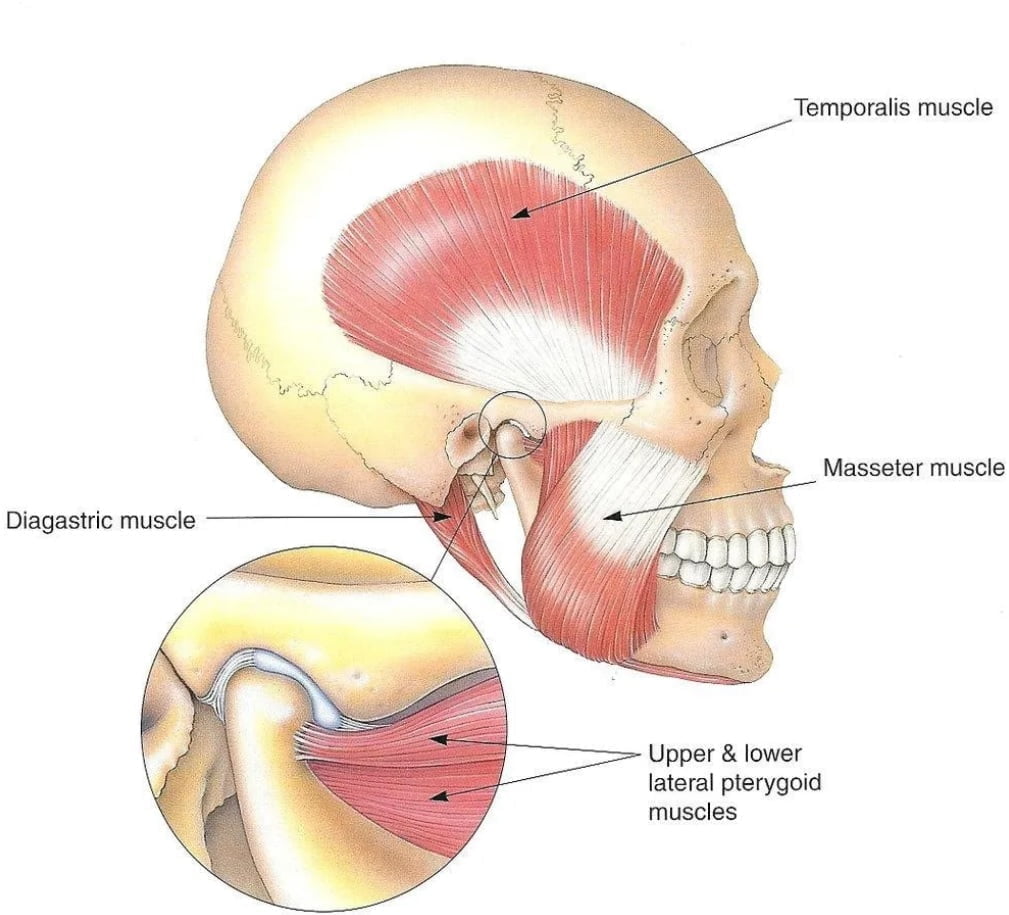TEMPORO-MANDIBULAR JOINT (TMJ) DISORDERS
What is the temporomandibular joint, and why does it matter?
Your temporomandibular joints (TMJ) are the joints located in front of each ear, where your jaw bone connects to your skull. Problems associated with the TMJ and the muscles that control jaw movement are known as “temporomandibular joint disorders”. They are relatively common and can result in a painful, clicking or locking jaw.
TMJ disorders can develop for a variety of reasons. They may occur in response to chronic teeth clenching or grinding as well as following damage to the joint, adjacent muscles or ligaments after an injury to the jaw. Disease can also be the source of TMJ disorders, as can arthritis. In many cases, TMJ disorders arise from a combination of causes, while in others, the underlying causes remain unclear.
What are the symptoms of TMJ disorder?
The most common symptom associated with TMJ disorders is a dull, aching pain, which varies in strength from mild to severe and is usually felt in the jaw, but can also be felt in the surrounding areas, including the face, ear and teeth. The pain radiates to the scalp, neck or shoulders and is usually worse when chewing hard foods and can be exacerbated by yawning or talking for a long time.
Whatever the cause may be, the result is often pain, stiffness and discomfort. Fortunately, for many people with TMJ disorders, the symptoms improve with time, and only a small number of patients develop ongoing problems. There are various treatments available to help control symptoms, including physiotherapy, medicines and dental treatments.
Thinking you might have a TMJ Disorder?
Do you…
- Grind or clench your teeth?
- Wake up with sore, stiff muscles around your jaws?
- Have frequent headaches or neck aches?
- Find the pain gets worse when you clench your teeth?
- Think stress makes your clenching and pain worse?
- Click, pop or lock when you open your mouth?
- Find it difficult or painful to open your mouth, eat, or yawn?
- Have a past neck, head, or jaw injury?
- Have joint problems like arthritis?
- Have teeth that no longer touch when you bite?
- Find your teeth touch differently from time to time?
- Find it hard to use your front teeth to bite or tear food?
- Find your teeth sensitive, loose, broken or worn?

Conservative approach for TMJ disorders
There are various conservative and surgical treatment options that Dr. El-Hakim, Dr. Makhoul and Dr. Gigliotti can use to improve the harmony and function of your jaw. Once a diagnosis of TMJ disorder has been confirmed, your M3L oral and maxillofacial surgeon will determine the proper course of treatment with you. It is important to note that a particular treatment always works best with a combination of self-care and professional care. The initial goal is to relieve the muscle spasms and joint pain and this is normally accomplished with a pain reliever, anti-inflammatory, or muscle relaxant. Steroids and other substances can also be injected directly into the joints to reduce pain and inflammation when indicated.
Surgical Treatment of TMJ disorders
Surgical procedures for TMJ conditions include arthrocentesis, arthroscopy, open joint surgery and total joint replacements which are usually reserved for severe or previously operated cases. If your TMJ disorder is associated with problems related to how your teeth fit together you may need more specific treatments such as bite adjustment, orthodontics with or without jaw reconstruction, or restorative dental work with or without TMJ procedures. Arthroscopic or open-joint surgery may be suggested to people with severe and persistent TMJ disorders with underlying structural joint problems.
Surgery is only recommended for those who have not responded to other treatments.
Your Oral and Maxillofacial surgeon may advise against TMJ surgery if your symptoms are not:
Severe
Consistent
If you can open and close your jaw all the way
Your surgeons, Dr. El-Hakim, Dr. Makhoul or Dr. Gigliotti will discuss in detail the pros and cons of the different procedures and which one would be the most appropriate in your case. To find out more about how they can help you improve the functionality of your jaw, or to book a consultation directly with our Maxillo 3 Lacs surgical team, please don’t hesitate to call us today at (514) 395-9896 or to contact us using our online form.

